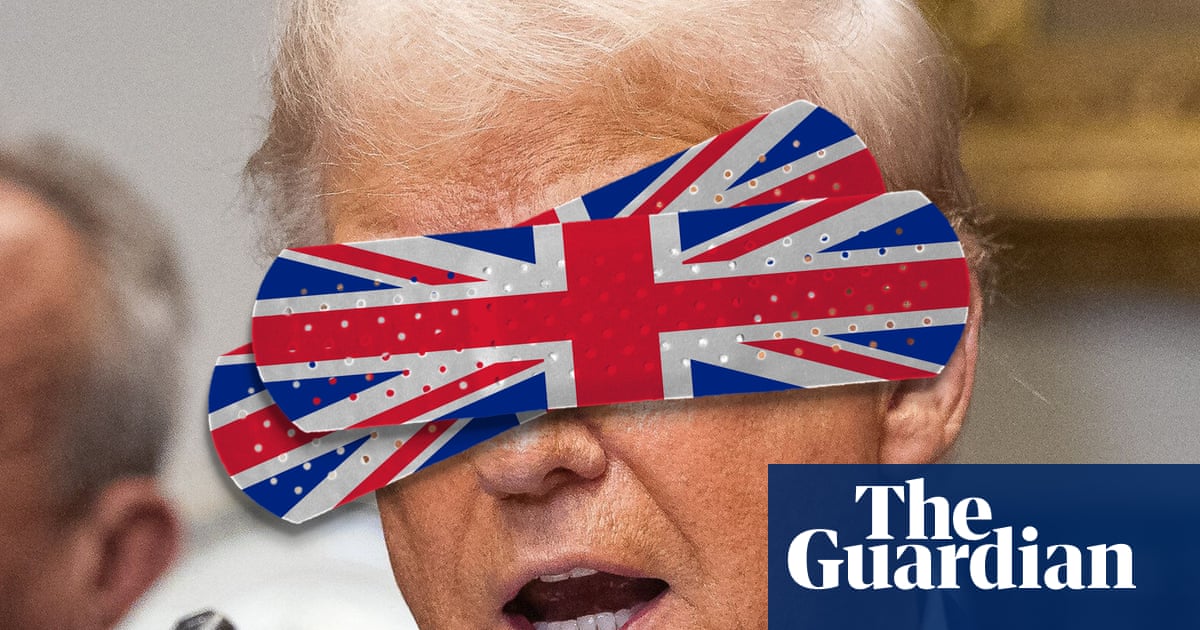Wes Streeting Responds to Trump’s Misinformation on Paracetamol and Pregnancy
Wes Streeting, the UK health secretary, found himself in a car traveling back to central London, having just participated in a flag-raising event to recognize the UK’s formal acknowledgment of Palestine. His phone buzzed with alarming news that Donald Trump had declared women should avoid taking Tylenol during pregnancy, alleging without evidence that it causes autism in children. “He was aghast,” an aide recalled. The moment encapsulated a strange intersection of health policy and political theater that has become common in the age of misinformation.
‘Listen to Doctors, Scientists’
In a world increasingly fraught with public health misinformation, Streeting realized he needed to act swiftly. Even though he was already set to appear on a breakfast show the next morning, he understood that this was no ordinary news cycle. “He knew he had to be unequivocal,” the aide stated. “Whatever diplomatic concerns may arise, our foremost responsibility is people’s health.”
When asked about Trump’s comments live on air, Streeting did not hold back. “I trust doctors over President Trump, frankly, on this,” he said, delivering a message that was as much about public health as it was about political posturing. “I want to be really clear: there is no evidence to link the use of paracetamol by pregnant women to autism in their children. None.” His message was echoed through a comprehensive media strategy encompassing various health authorities, and even supportive organizations, swiftly rebutting Trump’s claims.
A Unified Front
The Department of Health and Social Care (DHSC), alongside organizations such as the Medicines and Healthcare products Regulatory Agency and the National Autistic Society, rallied to deliver the same mantra: evidence-based science over hearsay. This unified front aimed to combat the growing tide of health misinformation that had begun to seep into public consciousness.
- Medical Stakeholders Involved:
- Royal College of GPs
- NHS England
- UK Health Security Agency
- National Autistic Society
Amidst this organized rebuttal, experts like Professor Helen Bedford from University College London expressed their outrage. “I was horrified because it’s not evidence-based, and he is the most powerful man in the world,” she stated. Her sentiments were mirrored by Dr. Susanna Kola-Palmer at the University of Huddersfield, who emphasized, “People are prone to authority bias… When health misinformation is being peddled by such a powerful figure, it risks eroding public trust in science.”
A Call to Action
Health authorities in the UK became increasingly concerned as surveys indicated a direct impact on public perception of paracetamol. In a recent study, 24% of UK pharmacies reported that patients were questioning the safety of the drug due to Trump’s remarks. Olivier Picard, chair of the National Pharmacy Association, expressed alarm, stating, “These are alarming findings which show that comments made in the US are having a direct impact on patients in the UK.”
As misinformation about medical treatments proliferates, the health community faces an uphill battle. High-profile examples abound: patients choosing dubious alternative treatments over evidence-based ones. The ramifications of Trump’s statements extend beyond mere public discourse; they have real-world implications for maternal and child health. Researchers have shown that misinformation can lead to adverse health outcomes. A hypothetical study might suggest that a 30% decrease in the usage of safe medications during pregnancy could translate to increased maternal anxiety and untreated health conditions.
Fringe Narratives and Their Reach
The recent claims by Trump echo a troubling trend where misinformation becomes part and parcel of public dialogue around health issues, particularly in the wake of the COVID-19 pandemic. As Professor Heidi Larson from the London School of Hygiene & Tropical Medicine indicated in an article published in the Lancet, the U.S. has been a significant exporter of health misinformation, creating ripples that reach far beyond its borders. “The American political discourse has a global impact that is difficult to contain,” she said. Countries as far away as Nigeria and Bulgaria have reported similar patterns of vaccine skepticism linked to misleading U.S. narratives.
While experts agree that misinformation poses a growing threat, solutions are far from straightforward. Dr. Chris van Tulleken, a global health expert, underscores the need for kinder approaches in addressing parental concerns about vaccinations and medications. “We must meet people where they are. If we fail to engage the public on their terms, we risk alienating them further,” he cautioned.
Engaging the Public
To combat misinformation effectively, reliance on traditional means of communication such as leaflets and websites isn’t enough. Authorities must engage in dialogue. “Evidence shows that the individual conversations people have with health professionals can be incredibly influential,” Bedford noted.
Moreover, social media platforms present a double-edged sword; while they can disseminate accurate information quickly, they also allow for the rapid spread of misinformation. The WHO’s collaborations with platforms like TikTok aim to combat harmful narratives by amplifying trustworthy content. But Dr. Alex Ruani emphasizes that “Big tech needs to do more” to regulate potentially dangerous health claims circulated online.
The stakes are high. As misinformation continues to proliferate, the health community must work collaboratively—not just within the UK but globally—to foster trust and respect for medical science. The responsibility lies not only with politicians like Streeting but also with healthcare professionals and tech giants alike to safeguard public health from the corrosive effects of misinformation.
Streeting’s decisive response to Trump’s claims shines a light on the urgent necessity for governments to prioritize public health over political expediency. Greater accountability in communication is essential as misinformation threatens the health of vulnerable populations and undermines years of scientific advances.
Source: www.theguardian.com


